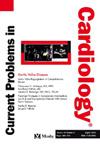针对 2 型糖尿病患者心血管健康的正念训练:批判性评论。
IF 3
3区 医学
Q2 CARDIAC & CARDIOVASCULAR SYSTEMS
引用次数: 0
摘要
正念训练作为一种改善心血管健康的潜在干预措施,受到了越来越多的关注,尤其是在 2 型糖尿病等慢性病患者中。鉴于 2 型糖尿病会增加心血管风险,因此确定有效的非药物策略来降低这些风险至关重要。这篇重要综述评估了正念训练对 2 型糖尿病患者心血管健康影响的现有证据。我们使用 PubMed 数据库进行了全面的文献检索,并根据严格的纳入和排除标准对研究进行了筛选。搜索策略经过精心设计,以筛选出高质量的文章,并确保只有最相关、最严谨的研究才被纳入分析。本综述的研究结果表明,虽然正念训练有可能改善 2 型糖尿病患者的心血管健康,但证据仍然参差不齐。一些研究报告显示,心血管指标(如血压和炎症)有明显改善,而另一些研究则显示效果有限或没有效果。这种差异凸显了进一步研究的必要性,以便更好地了解这些结果的内在机制,并确定对这一人群最有效的正念干预措施。总之,正念训练似乎是增强 2 型糖尿病患者心血管健康的一种很有前景的方法,但目前的证据尚不确定。未来的研究应重点关注正念干预措施的标准化、开展更大规模的临床试验以及探索这些干预措施对高危人群心血管预后的长期益处。本文章由计算机程序翻译,如有差异,请以英文原文为准。
Mindfulness training for cardiovascular health in type 2 diabetes: A critical review
Mindfulness training has gained increasing attention as a potential intervention to improve cardiovascular health, particularly in populations with chronic conditions, such as type 2 diabetes. Given the heightened cardiovascular risk associated with type 2 diabetes, identifying effective non-pharmacological strategies to mitigate these risks is crucial. This critical review assessed the current evidence on the impact of mindfulness training on cardiovascular health in individuals with type 2 diabetes. A comprehensive literature search was conducted using the PubMed database, and studies were selected based on stringent inclusion and exclusion criteria. The search strategy was meticulously designed to filter out high-quality articles and ensure that only the most relevant and rigorous studies were included in the analysis. The findings from this review suggest that while mindfulness training has the potential to improve cardiovascular health in individuals with type 2 diabetes, evidence remains mixed. Some studies have reported significant improvements in cardiovascular markers, such as blood pressure and inflammation, while others have shown limited or no effects. This variability highlights the need for further research to better understand the mechanisms underlying these outcomes and identify the most effective mindfulness interventions for this population. In conclusion, mindfulness training appears to be a promising approach for enhancing cardiovascular health in Type 2 diabetes patients, yet the current evidence is inconclusive. Future research should focus on standardizing mindfulness interventions, conducting larger clinical trials, and exploring the long-term benefits of these interventions on cardiovascular outcomes in high-risk populations.
求助全文
通过发布文献求助,成功后即可免费获取论文全文。
去求助
来源期刊

Current Problems in Cardiology
医学-心血管系统
CiteScore
4.80
自引率
2.40%
发文量
392
审稿时长
6 days
期刊介绍:
Under the editorial leadership of noted cardiologist Dr. Hector O. Ventura, Current Problems in Cardiology provides focused, comprehensive coverage of important clinical topics in cardiology. Each monthly issues, addresses a selected clinical problem or condition, including pathophysiology, invasive and noninvasive diagnosis, drug therapy, surgical management, and rehabilitation; or explores the clinical applications of a diagnostic modality or a particular category of drugs. Critical commentary from the distinguished editorial board accompanies each monograph, providing readers with additional insights. An extensive bibliography in each issue saves hours of library research.
 求助内容:
求助内容: 应助结果提醒方式:
应助结果提醒方式:


